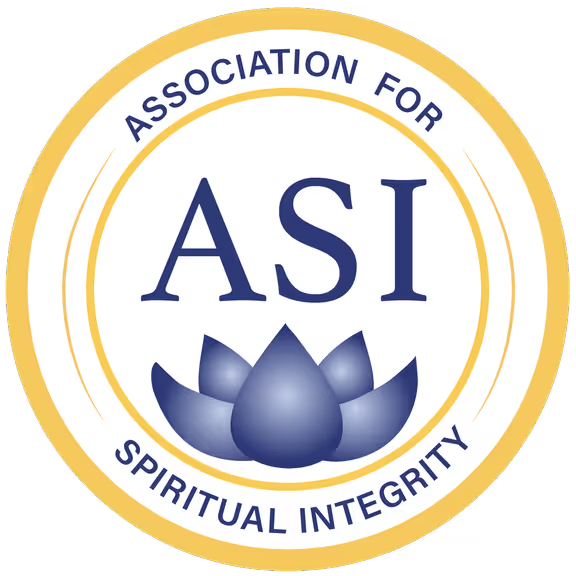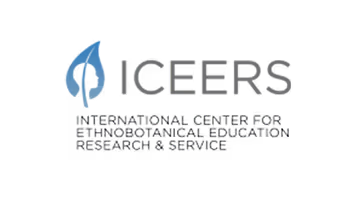Code of Ethics
Ethical Statements
This following document has been lovingly created by the PAC Volunteer Working Group on Ethics as a service to the community. We have been guided by materials from regulated professionals, our professional organizations, and our allies to support this process, those resources are listed at the bottom of the document.
Please advise us if we have not referenced your information clearly, or missed it.
In keeping with the PAC's mission to encourage guides to approach their work in the most competent and ethical manner – safeguarding the sacred traveller-guide relationship – we seek to inspire guides to be inspired by the following values, undertake practices that live these values and adopt specific commitments statements that are in alignment with their deepest values.
In this document, the word Guide represents all the professional capacities in which our members might serve, and the word Participant represents all whom they serve.
If you have any suggestions on how to improve this document your assistance is very welcome. You can do so using this form.
A. Value: Embodiment of Your Practice
Potential activities:
- Engage in guided journeys and integrate your key learnings into your personal and professional life.
- Seek out mentorship/supervision to support your guiding practice.
- Be personally familiar with the substances you supply
- Adopt a stance of humility and equality with all.
- Be willing to be vulnerable, open and curious.
- Engage in sharing, learning and growth for the benefit of the community of Guides (i.e. research, on-line webinars, courses, retreats).
B. Value: Integrity
Potential activities:,
- Gain familiarity and seek alignment to this Code of Ethics.
- Review specific guiding protocols and activities with your mentor/supervisor to ensure integrity in guiding work.
- If requested, communicate openly with PAC on any ethical issues or complaints brought forward.
- Participate in a peer review process: (such as an Accountability Pod)
- On a predetermined schedule, or
- Where you perceive there may be an ethical issue with another's practice, or where someone (guide or participant) may perceive an ethical issue with your practice
- Welcome feedback from fellow Guides and participants about perceived unethical behaviors and take steps to clarify and resolve issues
- Uphold the dignity and reputation of guiding/medicine work and those committed to its right use.
- Avoid seeking or presuming privileges or special status because of the role as a psychedelic guide. (A.S.I.)
- Regularly review motivations for serving as a guide and monitor the integrity of words and actions (A.S.I.)
- Refrain from giving counsel in matters outside of our areas of training and expertise and making appropriate referrals as necessary (A.S.I.)
Potential Personal Commitment Statements:
- I commit to developing a community of Guides that support my development and integrity, and hold me to account for my stated values, practices and commitments.
- I commit to accessing and communicating with other more experienced guides that have the ability to mentor me in my work.
- I commit to managing my reputation in this work, ensuring that my spirit, words and actions reflect positively on other guides.
- I commit to building a network of trustworthy guides that may receive referrals from me, or who may specifically support me where I have determined I lack capacity to guide a specific session.
- I commit to consciously examining my desires to guide, and with the support of other guides, ensure alignment with my stated values.
C. Value: Respect & Care
Potential Activities:
- Co-create a foundation for building trust, safety and well-being prior to, during and after sessions.
- Engage in practices where benefits outweigh potential harms, and where harms are researched and risks reduced. (do no harm -- do something good).
- Clarify confidentiality and limits to confidentiality and safe storage of participant information.
- Promote the dignity of all people, their inherent self-worth, their autonomy, and uphold human rights.
- Honor the natural world, cultural knowledge, ecological systems and social systems.
- Place the participant’s well-being first, including ensuring they are well-suited, that health issues/contraindications are addressed and they are prepared for each co-created session.
- Ensure location, appropriate support, accommodation and follow-up meets the needs of the participant.
Potential Personal Commitment Statements:
- I seek to engage the participant in the co-creation of the session, including educating them and outlining the structures of the session so that they are able to make choices regarding its design.
- I seek to be transparent on my world views and practices so as to enable a potential participant to choose me as a guide.
- I commit to do no harm and reduce harms and risks whenever and wherever possible.
- I seek to provide clarity on confidentiality and the limits to confidentiality such as the duty to report and legal requirements regarding receiving and storing information
- I seek to respect the dignity of all people and their inherent self-worth and autonomy
- I seek to care for nature, culture, ecological and social systems
- I commit to uphold human rights
- I commit to address all medical needs and emergencies
- I commit to protect the participants’s physical, emotional, psychological, spiritual, and legal wellbeing
- I commit to only practice with participants who are well suited and prepared for the experience
- I commit to only take actions for the best interests of participants
- I will ensure that all substances have been tested for safety
- I seek humility and to work in ways that ensures fairness and reduces my power/ superior position, without reducing safety and protection of the participant
- I seek to manage risk through setting boundaries around dosing, space and location.
- I assess people based on my scope of my practice, my ability to keep people safe and the person’s intention for a session.
- I offer appropriate closure and integration for each session.
- I seek to provide appropriate referrals for people that need someone other than me, or need support in addition to me.
- I commit to engage in nourishing activities outside my guiding practice that ensure I am fully present to guide another.
- I pay attention to my wellbeing and request support from my network of guides when I am not fully resourced.
D. Value: Build Capacity for Consent
Potential Activities:
- Engage with participants in ways that build the capacity of consent, communicate in ways that seek to achieve consent and go beyond consent (which we commonly give to things we don’t particularly want) to support clients to understand and exercise empowered choice and voice
- Model ways of seeking consent and giving consent and practising empowered choice and voice
- Offer dignity, autonomy and a balance of power in the guide / participant relationship.
- Distinguish what is consent and what is not consent, and how this may be influenced in non-ordinary states of consciousness (NOSC).
- Encourage the establishment of consent as informed, ongoing, and able to be withdrawn at any time.
- Understand how power dynamics, transference and the “appease” response can lead to people consenting to (and even asking for) things that are harmful to them or that they don’t truly want.
Potential Personal Commitment Statement:
- I commit to support participants to experience their right to understand any and all activities that they will be part of including any expected or potential harms, benefits, or potential sharing of their information, even if these are remote, rare, or infrequent .
- I commit to honor each person’s inherent dignity and autonomy. I commit to establishing Informed consent due to power and information imbalances in relationships.
- I commit to transparency and respect for an individual's autonomy and sovereignty, supporting people to engage consensually, take responsibility for the choices they make and the activities they take part in and experience their power in doing so.
- I commit to creating a container where participants can remain safe in an altered state, be unpredictable and make different choices under the influence of medicines. I commit to adhering to informed consent, ideally ongoing and possible to retract at any time.
- I commit to establishing informed consent that is ongoing and can be withdrawn at any time.
- I commit to offer clients information and options that are research based, including potential outcomes and risks
- I commit to establishing the right and opportunities to ask questions and have questions answered
- I commit to practices, activities and processes are negotiated and agreed upon
- I commit to ensuring the participant is fully informed of scope of practice, limits and professional allies.
- I commit to establishing fair fees agreed upon prior to sessions, including timelines for payment.
E. Value: Honor Diversity & Support Social Justice
Potential Activities:
- Understand contexts and functioning of power and power imbalances
- Work towards equity in relationships and society
- Develop cultural competencies
- Understand your own social location and its privileges
- Understand historical and contemporary injustices and oppressions
- Recognize social justice intersections of feminist, non-binary, decolonizing and anti-racist principles and practices - in general, and particularly as they intersect in the history and use of the medicines we utilize
- Seek to understand others’ perspectives
- Reflect upon privilege and the distribution of scarce resources
- Reflect on the precarity of racialized people who are disproportionately targeted for arrest and criminalization for drug use
Potential Commitment Statements:
- I respect the value of diversity, as it is expressed in the various backgrounds, identities, and experiences of participants and colleagues.
- I do not condone or knowingly engage in discrimination. I do not refuse professional service to anyone on the basis of race, gender, gender identity, gender expression, religion, national origin, age, sexual orientation, disability or socioeconomic status.
- I take into account my biases in the distribution of scarce resources.
- I take steps to examine my unconscious biases. I commit to ongoing self-reflection and to practice awareness, acceptance, and respect.
- I respect the unique experiences of participants, and practice openness towards their values, belief systems, and ways of healing.
- I am attentive to the impact of power dynamics in my relationships with participants, particularly where there are differences in privilege, gender, race, age, culture, education, and/or socioeconomic status.
- I commit to provide culturally-informed care with consideration of participants’ culture, race, identity, values, belief systems, and traditions.
- I commit to deepening my cultural understanding. I will educate myself on various cultures, identities, values, belief systems, and traditions. I will inform myself on social, political, and economic issues that are likely to impact participants.
- I agree to practice openness and respect towards people of all faiths, including those whose beliefs contradict my own. I understand that people in non-ordinary states of consciousness (NOSC) may have profound insights or experiences that fall outside my own beliefs, and I agree to remain respectful of participants’ beliefs, values, and experience.
F. Value: Competence & Life-Long Learning
Potential Activities:
- Engage in learning opportunities on a regular basis
- Seek specific training in working in trauma informed ways
- Work within areas of competence
- Increase self-awareness regarding projection, transference and countertransference
- Understand how values and beliefs may impact perception and observation
- Be informed of history, effects, research, legal status, and medical considerations related to psychedelic and entheogenic substances being used.
Potential Personal Commitment Statements:
- I commit to work within my scope of competence, training, and experience specific to the populations I am working with and the modalities I offer. (MAPS)
- I commit to ongoing professional development, seeking supervision and continuing education to further my guiding skills and presence.
- I assess at intake whether a potential participant’s needs can be addressed within my scope of competence and, if not, I commit to make informed referrals to other providers and services, or obtain support from a competent guide for that session
- I commit to understanding how a client’s trauma history may present in a session and understanding how to support them during a session.
- I commit to always offering the highest level of care and integrity to my clients.
- If I am taking a micro or low dose of the medicine that the client is using, I commit to being sober enough at all times to attend to the client’s needs first, without hesitation or impaired judgement.
- I commit to understanding projection, transference and countertransference in order to skillfully manage it for the benefit of the participant, and if I require support, I access my mentors or other training opportunities
- I commit to being aware of how my own belief systems, values, needs, and limitations affect my work.
- I commit to protect participants from the potential harm of manipulation and /or exploitation during a psychedelic session when they may be in a particularly vulnerable state.
- I commit to understanding the pharmacology of the substances the participant will be using and seek to tailor the substances and the dose to the participant's intention and capacity, titrating as necessary.
- I commit to participate in groups of practice and consult / seek reviews with colleagues and supervisors on a regular basis.
G. Value: Creating Honoring Processes
Potential Activities:
- Honor participant sovereignty.
- Supply enough information for participants to make an informed choice.
- Use trauma informed processes in all communication and practices.
- Use limited and appropriate self-disclosure.
- Practice self-care.
- Understand Guide / Participant transference.
- Set clear boundaries where multiple levels of relationship exist, or are being considered.
- Co-create a safe and intentional container for the guide/participant sessions.
Potential Personal Commitment Statements:
- I commit to respect participants as equals in co-creating and negotiating activities. I view the participant as one who has the right to self-determination and choice making.
- I commit to supplying the participant with information regarding the session framework and structures, and the remuneration for a session with me.
- I practice as if levels of trauma exist in most participants. I commit to understand and undertake trauma-informed practices including creating safety, being trustworthy, allowing choice, creating collaboration and supporting empowerment i.e. redirect participants towards their own inner healer vs giving advice.
- I commit to honoring a participant’s autonomy and boundaries as part of their trauma healing, particularly when these have been breached in the past.
- I commit to creating a safe enough container to hold a participant safe if trauma is triggered.
- I commit to the use of appropriate and limited self-disclosure.
- I commit to responding to transference and projection in ways that support the participants' healing and learning. I commit to seek support from my circle of colleagues for any countertransference, and its potential harms, occurring in me.
- I seek to avoid new multiple relationships where possible, recognizing the potential harms arising from the creation of a new relationship with a current or past participant. I commit to being transparent and to seek support from my mentors or a peer review if want to include a different type of relationship than Guide/Participant, ie. intimate or business relationship.
- I seek to understand suggestibility, increased self-confidence/self-efficacy, or hypomania of psychedelic states and work towards the best interests of participants in all circumstances.
H. Value: Honoring Peoples Bodies and Boundaries
Potential Practices:
- Engage in specific learning opportunities that build touch capacity and an understanding of how our trauma can be held in bodies.
- Understand the limits of your competence regarding touching others, especially sexually.
- Establish follow up processes with participants to receive authentic feedback about the impact of your touch.
- Understand the therapeutic benefits and the potential risks of touch and if touch is an offering in our practice, share these with participants.
- Establish informed consent for any/all touch that will be offered in a session. Go beyond consent to create an environment where the client’s empowered choice and voice is welcomed and celebrated
- Build participant’s capacity to voice consent and non-consent during the session by providing opportunities to choose during the intake and set up.
- Practice building your vocabulary to engage others to reach authentic consent regarding touch, as well as building a non-verbal language/signs to communicate with participants during a session where speaking may be difficult.
- Throughout each specific session, maintain touch decisions determined at intake and prior to ingesting medicine. Be aware of how substances may increase confidence leading to the tendency to by-pass personal and cultural boundaries. Hold a clear boundary for the participant and honour that a “Yes” can turn to “No”, however a “No” will not become a “Yes”.
- Consciously build respectful practices for platonic touch, sexual touch and ethical boundaries in your daily life.
- As a practice, engage in making requests of others who are skilled in consenting touch, to make requests to receive touch or be held in your uncomfortable emotions, especially during a guided session.
Potential Personal Commitment Statements:
- I commit to only using Touch if I am competent and it is in my scope of practice.
- I will not, in any circumstance, initiate or engage in sexual engagement or sexualizing behavior involving a participant, even if the participant attempts to sexualize the relationship. (National Assoc of Massage Therapists, US)
- I commit to always obtain consent and offer touch only for therapeutic purposes. I will only offer techniques if they are within my scope of practice and competence.
- I commit to discuss the use of touch and its potential risks and benefits during the intake and assure the participant that at no time will there be sexual touch, unless it is part of my practice.
- I commit to obtain consent for touch during the intake and prior to the participant ingesting medicine. I commit to maintaining those decisions around touch determined at intake and prior to ingesting medicine throughout active session. I commit to understanding the suggestibility and influence of medicine, and will honour original boundaries. “Yes’s can turn to No’s, but No’s can’t become Yes’s”
- I commit to upholding all agreements established with the participant at all times and will not initiate, respond to, or allow any sexual touch with participants outside of established agreements. (MAPS)
- I commit to the practice that consent for touch is given prior to the session and can be changed to NO TOUCH at any time during the session by the participant. (MAPS).
- I commit to examining my own sexual countertransference with each participant, to refrain from acting in ways that create ambiguity or confusion about sexual boundaries, and to seek supervision as needed.
- I commit to only overriding prior consent for NO TOUCH if the participant is in imminent danger of harming themselves or others (falling).
- I commit to discuss in advance simple and specific words and gestures that the participant is willing to use to communicate about touch during therapy sessions. For example, participants may use the word “stop,” or a hand gesture indicating stop, and touch will stop.
- I commit to practice discernment with touch, using clinical judgment and assessing my own motivation when considering if touching a participant is appropriate.
- I commit to respecting the sexual identities and expression of my participants, validating each participant’s processes that might relate to sexuality and sexual healing. However, I firmly maintain the responsibility as a provider of upholding clear and established professional boundaries.
- I commit to not engaging in an intimate relationship with a current or past participant or a participant’s spouse or partner, or immediate family member, without bringing the matter to a peer review.
- As a representative of this work, I aim to uphold clear sexual boundaries and ethics in my daily life, and create opportunities for my peers to give me feedback around my sexual boundaries and ethics.
Thank you to the volunteer Ethics Working Group
Lorraine Percy, Tricia Bowler, Scott Kouri, Pamela Kryskow, Brendan Leier, Michael Oliver, Michelle Gagnon
Profound thanks to these organizations and their Ethics Guidelines:
Therapist Organizations' Code of Ethics
Canadian Code of Ethics for Psychologists
American Art Therapy Association (AATA) Code of Ethics
American Association of Marriage and Family Therapy (AAMFT) Code of Ethics
American Counseling Association (ACA) Code of Ethics
American Psychiatric Association (APA) Code of Ethics
American Psychological Association (APA) Code of Ethics
National Association of Social Workers (NASW) Code of Ethics
United States Association for Body Psychotherapy (USABP) Code of Ethics



.svg)












